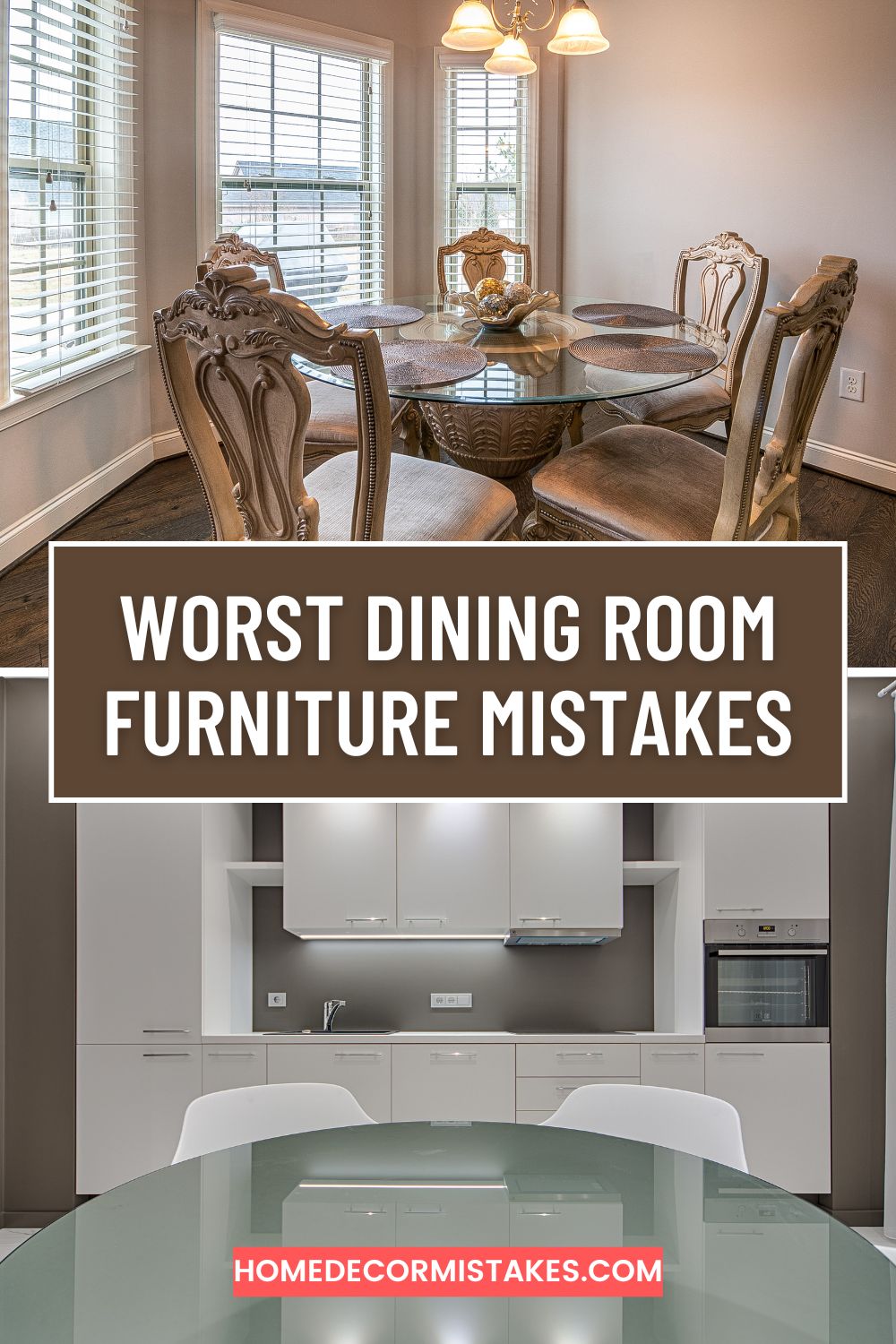The Ultimate Guide to Avoiding Dining Room Furniture Mistakes
Designing and furnishing your dining room can be an exciting yet challenging task. This space is not just for eating, but also for entertaining guests, celebrating special occasions, and enjoying family time. However, making mistakes in selecting and arranging dining room furniture can lead to a room that feels cramped, uncomfortable, or lacking in style. To help you create a dining room that is both functional and beautiful, we’ve put together this ultimate guide to avoiding common dining room furniture mistakes.
1. Neglecting Proper Measurements
One of the most common mistakes when furnishing a dining room is failing to measure the space accurately. Before purchasing any furniture, measure your dining room dimensions, including the length, width, and height. It’s essential to ensure that your furniture will fit comfortably without overcrowding the room. Remember to consider the space needed for movement around the table and chairs.
Quick Tips:
- Use a tape measure to get accurate dimensions.
- Consider the size of doorways and hallways for furniture delivery.
- Leave at least 36 inches between the edge of the table and walls or other furniture for easy movement.
2. Ignoring the Scale and Proportion
Choosing furniture that is appropriately scaled to your dining room is crucial. Oversized furniture can overwhelm a small room, while too-small pieces can make a large room feel empty and uninviting. Striking the right balance between furniture size and room proportion is key to creating a harmonious and functional space.
Quick Tips:
- Use graph paper or a room planning app to visualize the layout.
- Match the size of the dining table to the size of the room.
- Choose chairs that complement the table size and room dimensions.
3. Overlooking Comfort
Your dining room should be as comfortable as it is stylish. Often, people focus on aesthetics and forget about comfort. Uncomfortable chairs can deter you from using the dining room as often as you’d like.
Quick Tips:
- Test chairs for comfort before purchasing.
- Consider chairs with padded seats and backs for added comfort.
- Ensure there’s enough legroom under the table for diners.
4. Choosing the Wrong Table Shape
The shape of your dining table should correspond with the shape and size of your dining room. Different table shapes can offer various advantages, depending on your needs and space.
Quick Tips:
- Rectangular tables are ideal for long, narrow rooms and large gatherings.
- Round tables are perfect for small spaces and promote conversation.
- Square tables work well in square rooms and create a balanced look.
5. Forgetting About Storage
Storage is often overlooked in dining room design. However, having adequate storage can keep your dining room tidy and organized.
Quick Tips:
- Incorporate a buffet or sideboard for storing dining essentials.
- Use cabinets or shelves to display and store glassware and dinnerware.
- Consider multi-functional furniture, such as a table with built-in storage.
6. Disregarding the Lighting
Lighting plays a significant role in creating the right ambiance in your dining room. Poor lighting can make the room feel dull and uninviting, while well-planned lighting enhances the dining experience.
Quick Tips:
- Invest in a statement chandelier or pendant light above the dining table.
- Use dimmers to adjust the lighting intensity according to the occasion.
- Add wall sconces or floor lamps for additional lighting and atmosphere.
7. Skipping Personal Style
Your dining room should reflect your personal style and taste. Avoid the mistake of making it look too generic or impersonal. Injecting your personality into the design will make the space more inviting and enjoyable.
Quick Tips:
- Choose a color scheme that resonates with you.
- Incorporate artwork, decorative items, and textiles that reflect your taste.
- Mix and match different furniture styles to create a unique look.
8. Not Planning for the Future
Consider your long-term needs when selecting dining room furniture. Your family size, entertaining habits, and lifestyle may change, and your dining room should be able to adapt accordingly.
Quick Tips:
- Opt for an extendable dining table to accommodate more guests when needed.
- Choose durable materials that can withstand wear and tear.
- Think about versatile furniture pieces that can serve multiple purposes.
Conclusion
Creating a beautiful and functional dining room involves careful planning and consideration. By avoiding these common furniture mistakes, you can design a dining space that is comfortable, stylish, and perfectly suited to your needs. Remember to measure accurately, consider scale and proportion, prioritize comfort, choose the right table shape, incorporate storage, plan the lighting, infuse personal style, and think about future needs. With these tips in mind, you’re well on your way to a dining room that you’ll love for years to come.

